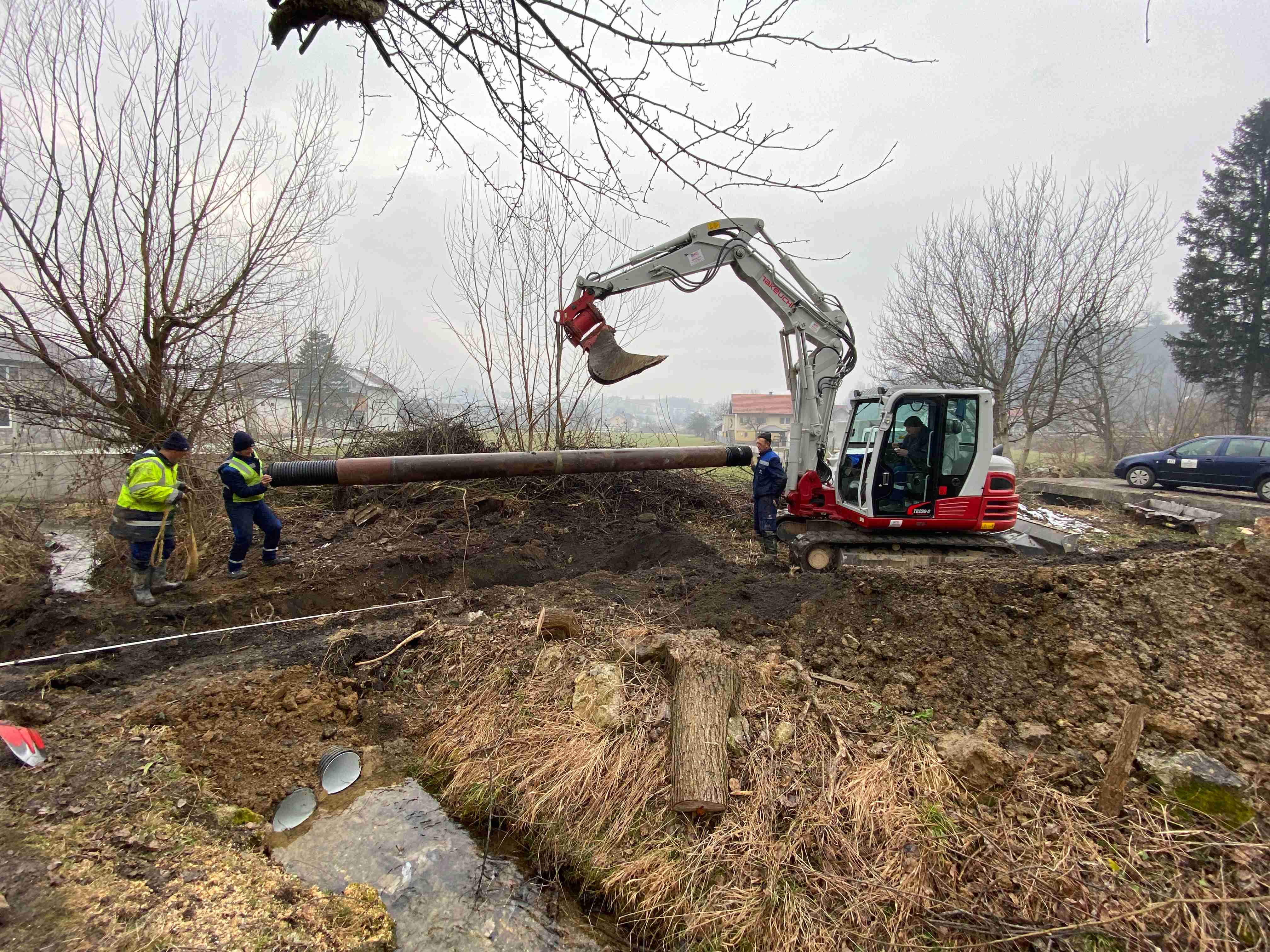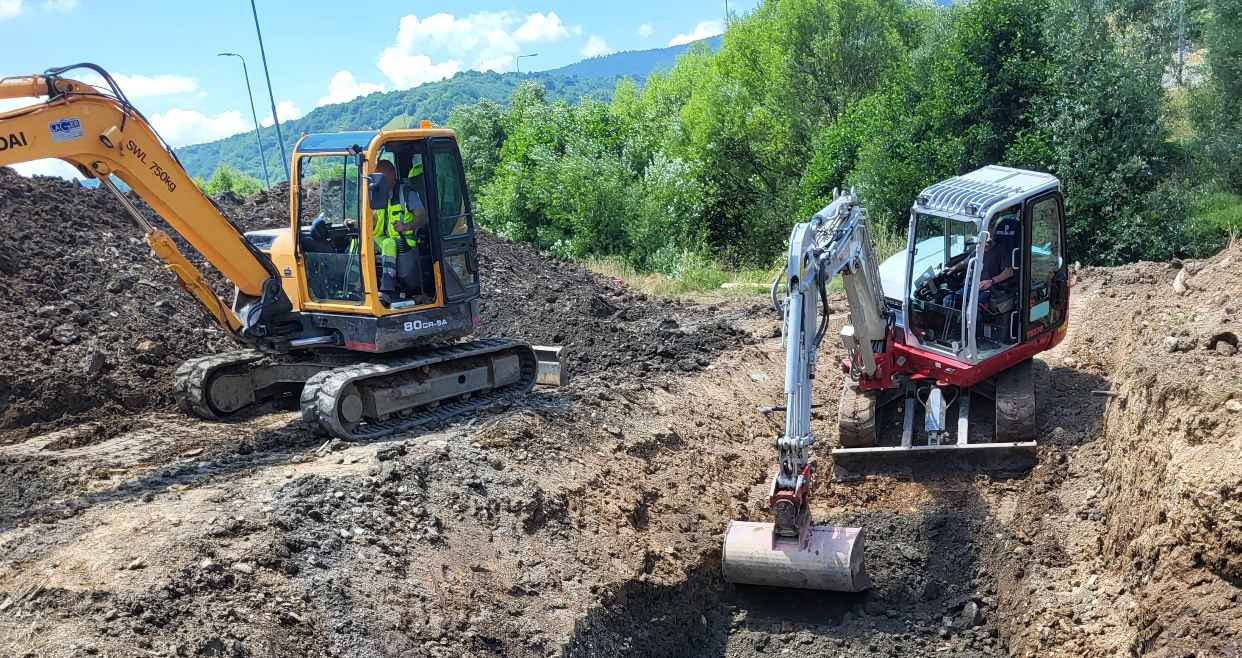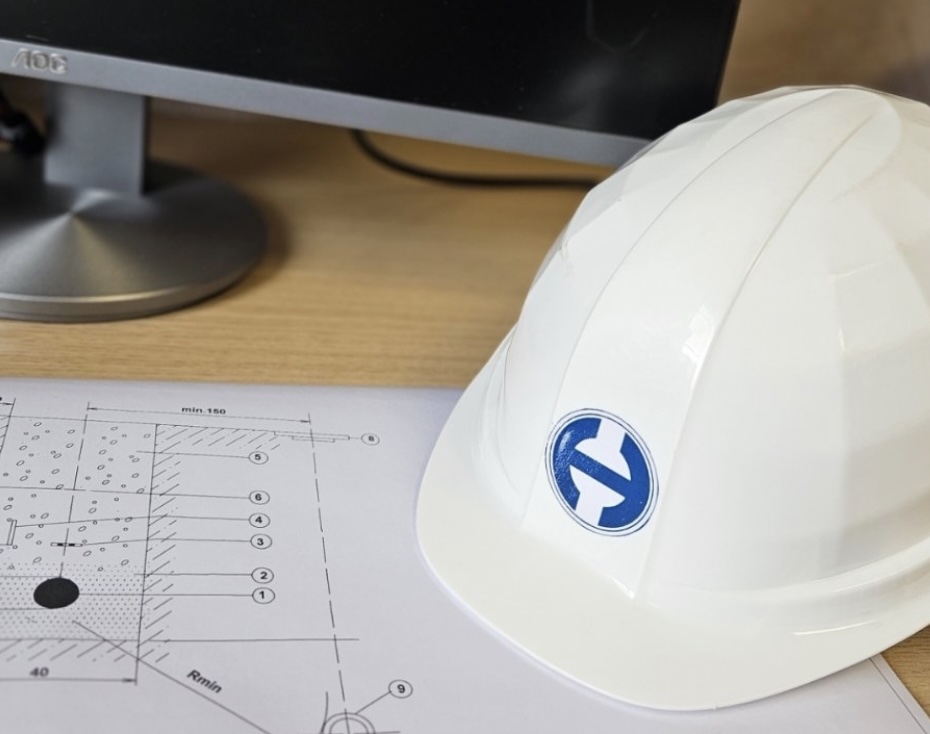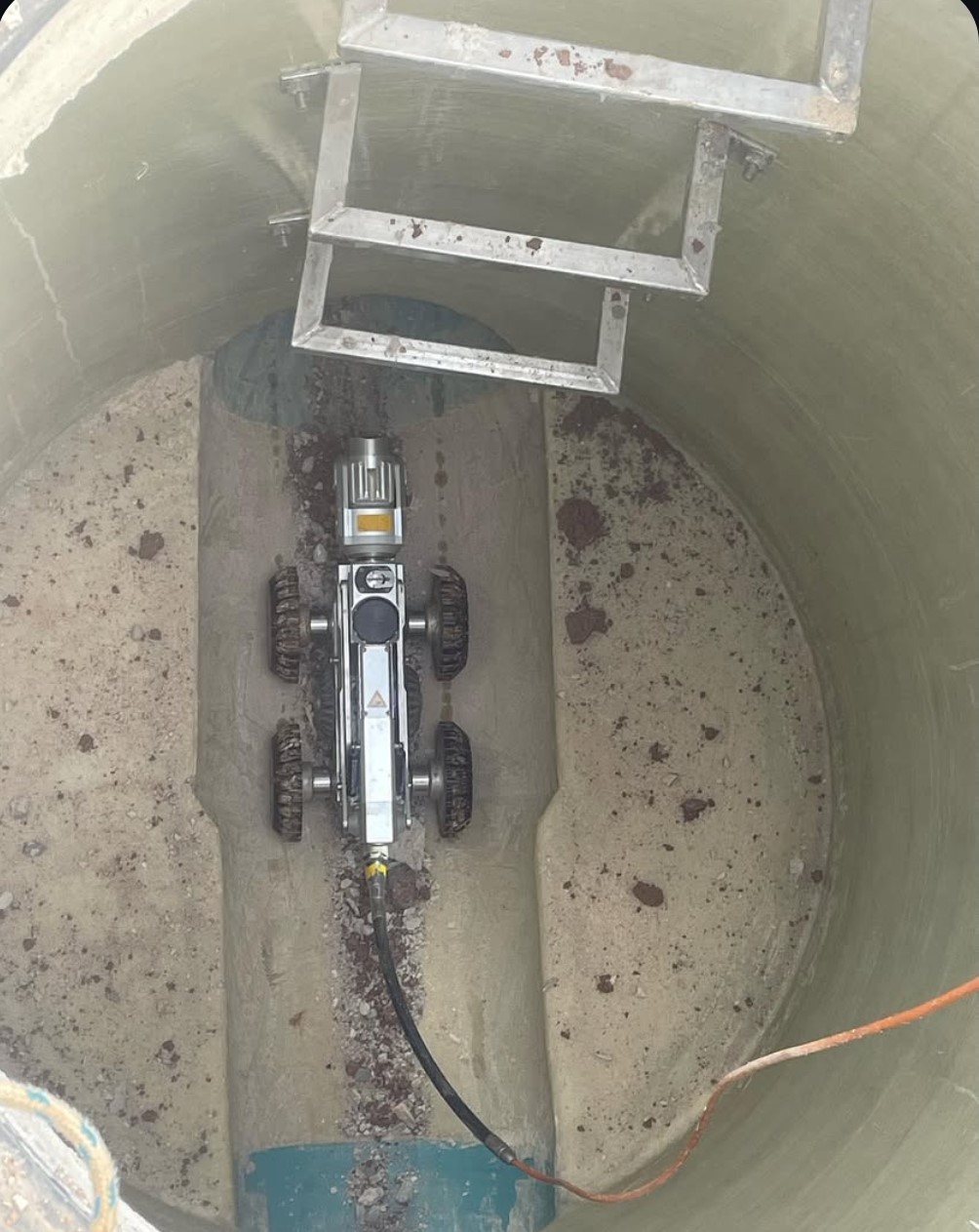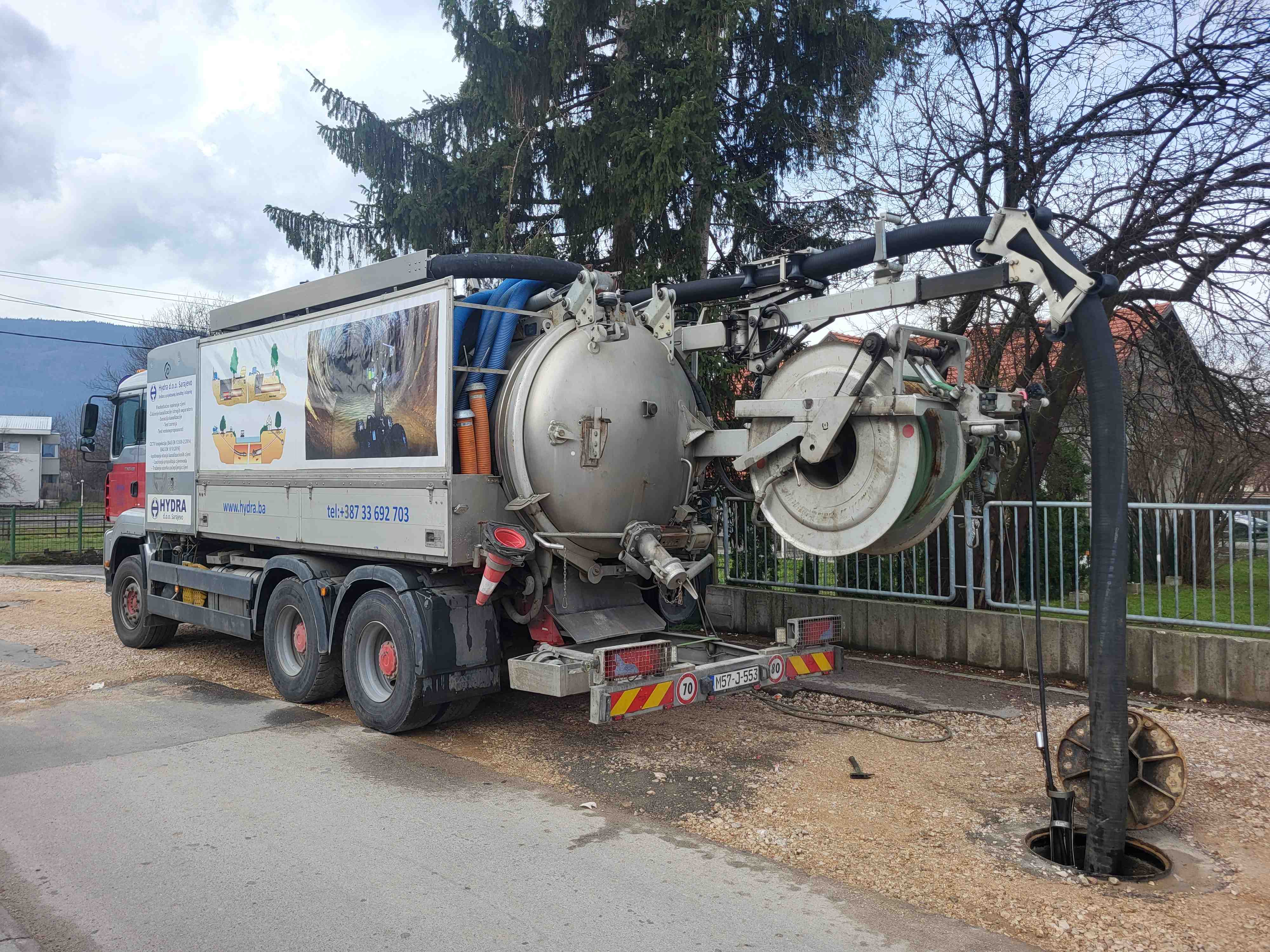Radio Controlled Directional Drilling (HDD)
Radio Controlled Horizontal Directional Drilling (HDD) is a modern non-invasive technology for installing protective pipes intended for laying gas pipelines, water pipelines, sewage systems and power cables, without the need for traditional excavations.
Our company has introduced a number of technological innovations in the field of civil engineering, among which the application of the HDD method with the use of advanced equipment Ditch Witch – All Terrain, which allows the execution of even the most demanding wells.
Technology enables:
- Precise management during drilling in accordance with project documentation
- Working in different types of soil – including rocks
- Minimal impact on the environment
- Avoiding disruption of existing infrastructure systems
Steps of the process:
- Construction of a pilot well
- Expansion of the opening
- Retracting the pipe
It is possible to lay several pipes at the same time, with diameters from 32 mm to 1400 mm, which makes HDD an efficient, environmentally friendly and technically superior solution for works in urban and infrastructurally complex areas.
Making under-drilling with metal protective tube
Drilling with protective metal pipe is a reliable method for performing the installations below:
- Traffic
- Railway lines
- Watercourse
- Other infrastructures
Advantages:
- No removal of material from under the pavement
- Prevents subsidence and damage to asphalt surfaces
- Possible boreholes: 114 mm to 2000 mm diameter, length up to 50 m
- Applicable in complex geotechnical conditions (II to IV soil category)
- Environmentally acceptable
- Minimal construction pits
- Drilling at shallow depths with high precision
Drilling for domestic connections
Modern technology for building home connections for:
- Plumbing
- Gas line
- Electric
- Telecommunications
Features:
- No classic digs
- Suitable for urban and infrastructurally demanding locations
- Lengths up to 50 meters, diameters 25 mm to 125 mm
- Fields: II. to VII. soil categories
- The possibility of inserting PE, PP and metal pipes
- Fast, precise and minimally invasive performance
Microtunneling
Microtunneling is a highly precise technology without surface excavation for the installation of large diameter pipelines:
- 150–3800 mm diameter
- Over long distances
- In all types of soil (including rock, sand and clay)
Advantages:
- Uses remotely operated equipment (MTBM)
- Constant monitoring from the control cabin
- Maximum security and precision
- Ideal for works under roads, railways and waterways
- Use of different pipes: reinforced concrete, polyester, metal
- Superior solution where other methods are not applicable
Making punctures with a pneumatic needle
The most economical system for shorter and less demanding road crossings and barriers.
Ideal for:
- Telecommunications lines
- Water pipes
- Gas pipes
- Sewage pipes
- Smaller diameter electrification
Specifications:
- Diameters: fi 32 mm to fi 160 mm
- Lengths: up to 25 meters
Advantages:
- Fast and efficient execution
- Narrow construction pit
- Satisfactory precision
- Environmentally friendly (uses air as a driving medium)
- Execution possible even in demanding terrain
Note: In demanding terrain, the penetration depth must be 10 times greater than the borehole diameter, especially under roads.
Vertical drilling
Specialized process for:
-
Wells
-
Pumping stations
-
Geothermal systems
-
Access to groundwater
Advantages:
- Fast execution
- Narrow construction pit
- Lower environmental impact
- High quality and stability thanks to metal protective pipe
- Economically acceptable
- High precision – essential for geothermal installations, hydrological research, pumps
Note: HDD technology complies with current European standards and is an environmentally friendly way of performing underground installations.


































